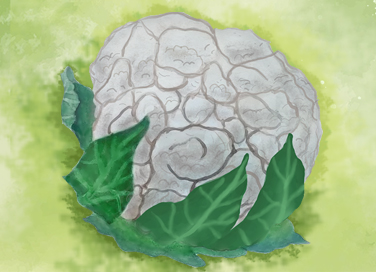Gobi’s Globetrotting Gastro-tale!
- July 4, 2022


Gobi’s Globetrotting Gastro-tale!
- July 4, 2022
By Komal Narwani
An exotic vegetable, lovingly made Indian by Indians, cauliflower was brought to India by the British. In 1822, Botanist Dr Jemson, in charge of the Company Gardens in Saharanpur in the United Provinces (present-day Uttar Pradesh), first imported cauliflower seeds from England to India.

In order to experiment, the crop was grown at the same time in both countries, India and England. However, India’s climatic conditions gave birth to a new variety of cauliflower. The growers researched this variety, which eventually led to the introduction of the Indian cauliflower. By 1929, four new varieties of Indian cauliflower were raised viz. Early and Main Crop Benaras and Early and Main Crop Patna.
To receive more such stories in your Inbox & WhatsApp, Please share your Email and Mobile number.
Utsa Ray in her book ‘Culinary Culture’ in Colonial India states two possible reasons why the colonists brought this vegetable to India.
However, in no time, various Indian communities added cauliflower as an ingredient to their traditional recipes, making the vegetable local and popular. From Gobi Paratha to Gobi pakodas and Aloo Gobi to Gobi Masala, cauliflower has adapted itself to every recipe and continues to tingle the taste buds of millions.
To receive more such stories in your Inbox & WhatsApp, Please share your Email and Mobile number.

Comic of The Month
The Naval Journey of India Book I
This book is the first of a three-book series that takes a deep and detailed look at India's Naval History and a deep insight into the lives of our men and women in white. But any series on the Indian Navy has to start at the very beginning - exploring India's celebrated maritime history. Join our little hero, Bharat, and his grandfather, Commodore Sagar, as they sail into the deep blue waters of time. Book I of The Naval Journey of India takes a sweeping look at India's maritime endeavours, how the seas impacted us over millennia and how the oceans made us who we are.